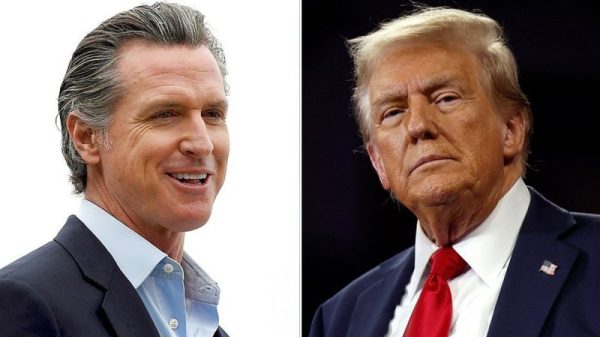The cannabis industry is facing similar worrying trends and patterns in 2023 as it did throughout 2022.
In the US market, investors are eagerly awaiting the potential enactment of policies that would aid the financial reality of the market. The level of optimism surrounding this event varies from moderately cautious to doom and gloom on any given day. Meanwhile, in Canada, investors are expected to continue seeing strategic closures and shifts as operators pursue cost-cutting measures.
US operators
Cannabis remains illegal at the federal level in the US, but state market openings have allowed US-based operators to thrive. Typically these firms set up vertically integrated businesses with a focus on branded products, retail networks and licenses.
While these companies have adapted to regulatory challenges, they have much to gain from country-level reform in the US, and are eager to see more welcoming federal laws that will allow their businesses to develop further.
US-focused cannabis fund
The AdvisorShares Pure US Cannabis ETF (ARCA:MSOS) is one of the only funds strictly focused on US-based names with interests strictly tied to state-by-state cannabis programs. These businesses pursue growth assets, dispensary networks and unique branding to establish their base in the states that most appeal to their commercial interests.
While states like California and Colorado are known for their wide-open cannabis policy, experts have pointed to limited license states as the most desirable markets for publicly traded cannabis companies looking for an edge.
MSOS has increased in value by 3.22 percent in 2023, resulting in a price point of US$7.37 as of October 17.
1. Green Thumb Industries (CSE:GTII,OTCQX:GTBIF)
ETF weight: 24.2 percent; market cap: US$2.29 billion; current share price: US$9.29
Green Thumb Industries is headquartered in Chicago, Illinois, and produces and sells medicinal and recreational cannabis through wholesale and retail channels in the US. It offers multiple products under a portfolio of cannabis consumer packaged goods brands.
2. Curaleaf Holdings (CSE:CURA,OTCQX:CURLF)
ETF weight: 20.02 percent; market cap: US$2.72 billion; current share price: US$3.70
Curaleaf Holdings is headquartered in Wakefield, Massachusetts, and cultivates and sells medicinal and recreational cannabis in the US. Curaleaf bills itself as one of the only US-based state operators that is expanding into the emerging European cannabis market.
3. Verano Holdings (CSE:VRNO,OTCQX:VRNOF)
ETF weight: 14.36 percent; market cap US$1.55 billion; current share price: US$4.51
Verano Holdings is a vertically integrated multi-state operator in the US. The firm operates licensed cannabis cultivation, processing and retail facilities, and produces a suite of premium, artisanal cannabis products sold under its portfolio of consumer brands.
4. Trulieve Cannabis (CSE:TRUL,OTCQX:TCNNF)
ETF weight: 10.67 percent; market cap: US$928.08 million; current share price: US$4.99
Trulieve Cannabis is a vertically integrated and fully licensed seed-to-sale medical marijuana company. It is mainly engaged in the cultivation, possession, use, sale and distribution of medical cannabis. Trulieve is based in the state of Florida, and holds a dominant market share in the Sunshine State. However, the firm has expanded its reach into other legal state markets as well.
5. TerrAscend (CSE:TER,OTCQX:TRSSF)
ETF weight: 7.76 percent; market cap: US$658.85 million; current share price: US$1.88
TerrAscend is a Toronto-headquartered cannabis operator with interests across the US, particularly in Pennsylvania, New Jersey, Michigan, California and Maryland.
Canadian growers
In 2018, Canada became the first G7 nation to legalize adult-use cannabis and create its own streamlined program regulated by both federal and provincial powers. Since then, companies working in the country have faced ups and downs in dealing with tight marketing rules and ongoing competition with the unregulated market.
Canada-based cannabis fund
The Horizons Marijuana Life Sciences Index ETF (TSX:HMMJ) is a basket of some of the biggest names in the cannabis industry.
The fund does not hold US-based multi-state operators but does have US exposure by way of some Canadian companies with remote interests in the coveted American market. HMMJ holds the distinction of being the first cannabis ETF in Canada.
This ETF hasn’t had the best year, with a year-to-date loss of 25.25 percent as of October 17 and a price point of C$8.97.
1. Innovative Industrial Properties (NYSE:IIPR)
ETF weight:14.83 percent; market cap: US$2.16 billion; current share price: US$78.17
Innovative Industrial Properties is a real estate company that provides processing warehouses, greenhouses and other real estate opportunities for the cannabis industry in regulated states. Most of their properties are industrial, with a small percentage dedicated to retail spaces. Its portfolio includes 108 properties across 18 states, with the majority concentrated in Colorado where there are 27 facilities.
2. Cronos Group (NASDAQ:CRON,TSX:CRON)
ETF weight: 13.6 percent; market cap: US$683.24 million; current share price: US$1.74
Cronos Group cultivates and sells medicinal and recreational cannabis in Canada. Although it primarily operates in Canada, Cronos exports medical cannabis abroad as well as, and has partnerships outside of Canada. The firm also sells hemp-derived CBD products in the US through a partnership with PharmaCann.
3. Tilray Brands (NASDAQ:TLRY,TSX:TLRY)
ETF weight: 12.43 percent; market cap: US$1.4 billion; share price: US$1.91
Tilray Brands is a Canadian producer that cultivates and sells medical and recreational cannabis. In 2021, Aphria acquired Tilray in a reverse merger and renamed itself after the latter company. The bulk of Tilray’s sales are in Canada and in the international medical cannabis export market. The company’s US exposure consists of CBD products.
4. SNDL (NASDAQ:SNDL)
ETF weight: 5.67 percent; market cap: US$387.79 million; current share price: US$1.49
SNDL, formerly Sundial Growers, is engaged in producing and marketing cannabis for the adult-use market. The company’s primary focus is on producing and distributing inhalable products and brands. SNDL is pursuing international assets in addition to its Canadian operations, and has expanded internationally with holdings in Germany and Israel.
5. Canopy Growth (NASDAQ:CGC,TSX:WEED)
ETF weight: 4.84 percent; market cap: US$451.60 million; current share price: US$0.53
Canopy Growth, headquartered in Smiths Falls, Canada, cultivates and sells medicinal and recreational cannabis, as well as hemp, through a portfolio of brands. Additionally, the firm has interests in the US with an acquisition option for Acreage Holdings (CSE:ACRG.A.U,OTCQX:ACRHF). The firm has the financial backing of alcohol-maker Constellation Brands (NYSE:STZ).
FAQs for investing in cannabis
Are cannabis stocks worth investing in?
Each investor will have to think and act for themselves to manage their own risk exposure, but it’s no secret that cannabis stocks have taken a beating for some time now. While financial experts point to the long-term upside of US operators as more state markets expand, the stock market has not been kind to these names lately.
Are cannabis stocks considered a high- or low-risk investment?
Cannabis investments are extremely young in the grand scheme of the investment universe. There is an exciting and refreshing element to these stocks, but the market has always been characterized by volatility and unpredictability.
While wild, spontaneous swings in the open market have become less common, cannabis stocks are often moved — both positively and negatively — by big pieces of market news or legalization updates.
Why do people buy cannabis stocks?
Investors may choose to get exposure to the cannabis market as a way to participate in the development of a new drug market with consumer packaged goods capabilities. Some participants are bullish on the industry’s long-term outlook and expect more welcoming laws in the US and across the world to provide upward momentum.
Securities Disclosure: I, Meagen Seatter, hold no direct investment interest in any company mentioned in this article.


































